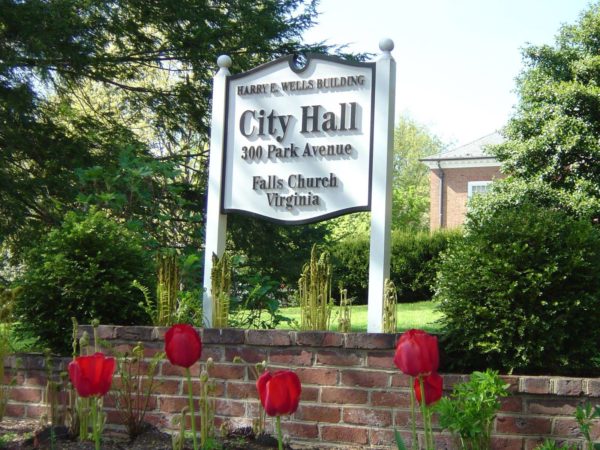

When it comes to municipal spending, $18 million in two years seems like pocket change, but for a smaller locality like the City of Falls Church, it represents a rare opportunity to address critical needs outside the constraints of a limited budget.
That’s how much money Falls Church has been allocated from the American Rescue Plan Act (ARPA), the COVID-19 relief package signed into law on March 11. The city received a first installment of $9 million in June and anticipates getting the other $9 million around this time next year.
Now, the Falls Church City Council must decide how to use the federal funding, which must be allotted by December 2024 and spent by December 2026, city staff told the council during a work session last Monday (July 19).
“Just in terms of engaging the public, this is a really important process for the city,” Falls Church City Manager Wyatt Shields said. “One of our goals is to act quickly on some immediate things that we need to put funding for, but also take a reasonable amount of time to think about the big picture and make sure we’ve considered all options before we start allocating big chunks of the dollars.”
The U.S. Treasury allows Coronavirus State and Local Fiscal Recovery Fund dollars from ARPA to be spent in four ways:
In preliminary discussions before the work session, Falls Church City staff identified sewer infrastructure projects and public space improvements as top priorities based on their anticipated long-term impact and social equity considerations, according to a memo to the council.
Financing existing stormwater and sanitary sewer projects was easily the highest-scored option on staff’s list of funding priorities, followed by increasing broadband access for underserved populations and rebuilding the city’s property yard to accommodate an emergency operations center.
The proposed improvements to public spaces include upgrades at Berman Park, which is on the Fiscal Year 2022-2027 Capital Improvements Program for new play equipment, and a permanent stage for the barn in Cherry Hill Park. The list also suggests creating large outdoor classrooms with roofs and supporting dog parks, citing their mental health benefits.
Councilmember Letty Hardi suggested that the city consider how to add more public space in addition to improving existing spaces.
“If nothing else, we’ve learned from the public health crisis that being outdoors is good for everybody’s health, so it’s not just improving it, but how do we add spaces?” she said. “How do we add more green space to the city, and how do we use ARPA dollars to do that?”
She also expressed support for using federal relief money to help schools open full-time this fall, provide more one-on-one COVID-19 vaccination outreach, enhance childcare services, and enable businesses to operate permanent outdoor spaces.
Falls Church City Director of Finance Kiran Bawa cautioned that the city still needs to verify that each potential project is eligible for ARPA funding, and spending decisions will likely be affected by what the Virginia General Assembly does when it meets for a special session on the federal relief package on Aug. 2.
Staff are also awaiting additional clarification from the Treasury on what can be included under the “lost revenue” category.
Multiple councilmembers said they want the funds to go toward long-term needs, such as infrastructure maintenance and capital improvements that typically require the city to take on debt.
“My concern is that the focus be too much on the short term and today and not extensive enough on the long term in terms of funding the CIP,” Councilmember David Snyder said. “This amount of money is, in all my experience, a truly unique situation, where we can more effectively than ever before manage our long-term, very extensive infrastructure and other capital needs.”
Localities can use ARPA funds to avoid issuing debt, but the Treasury explicitly prohibits the money from being used to pay off existing debt, according to Falls Church Assistant City Manager Cindy Mester.
Shields told the council that the current plan is to conduct a survey of residents and businesses starting in August to gather ideas and input on what the city’s priorities should be before holding virtual town hall meetings in September.
Staff could present a draft budget amendment for an initial batch of funds that could go toward time-sensitive projects by the council’s scheduled meeting on Aug. 9, Shields said.
He agreed with Councilmember Debbie Hiscott that the design of the community survey will be key to the success of the public engagement process.
“It’s got to be a very effective survey instrument if we’re going to get good input from the public with it,” Shields said. “We have not yet begun developing that survey, and that will take some time and thought to do it well, so we will consult [the council] prior to putting that out.”